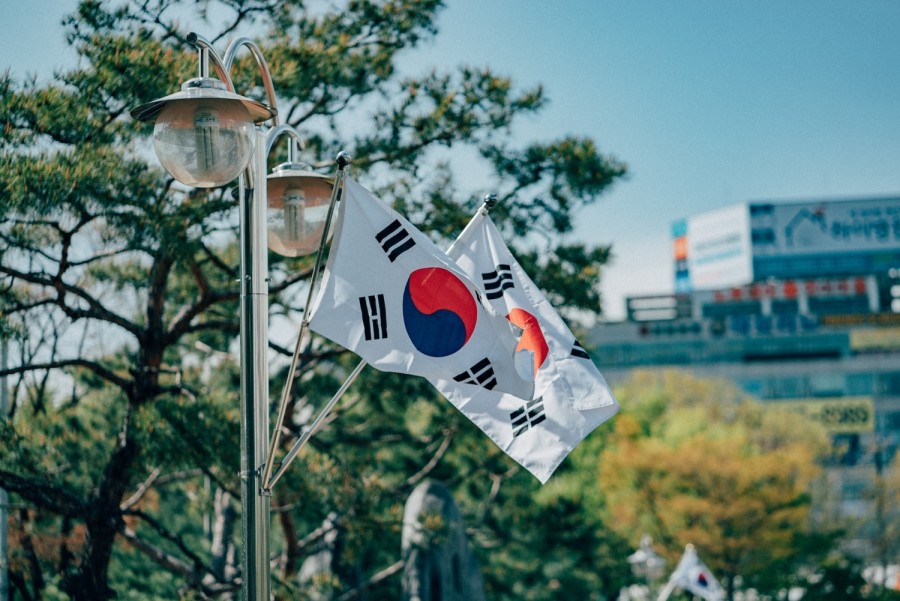The Pros and Cons of Living as an Expat in South Korea

South Korea, a vibrant and technologically advanced country, has been attracting an increasing number of expatriates worldwide. With its booming economy, rich cultural heritage, and high standard of living, it offers numerous opportunities and experiences for those looking to live and work abroad.
However, like any other expat destination, South Korea has its pros and cons you should consider before deciding to relocate. This article will explore the advantages and disadvantages of living as an expat in South Korea.
Pro: Economic opportunities
South Korea boasts a strong and dynamic economy, focusing on industries such as technology, automotive, and entertainment. Expats, particularly those with specialized skills or qualifications, can find ample job opportunities and earn higher salaries compared to their home countries.
Technology stands out as a popular sector, with opportunities in companies specializing in electronics, telecommunications, software development, and e-commerce. South Korea is also known for its automotive industry, offering expats prospects in automobile manufacturing and research and development. Moreover, the entertainment industry, including music, film, and television, has gained global recognition, attracting expats with talents in acting, singing, production, and related fields.
Other sectors such as finance, engineering, healthcare, and education also provide promising avenues for expats seeking employment and professional growth in South Korea's dynamic economy.
Con: Work culture
Korean work culture can be challenging for aliens due to its demanding nature, emphasis on hierarchy, and long working hours. The culture strongly emphasizes dedication and hard work, often leading to extended workdays that extend well beyond the typical 9-to-5 schedule.
Additionally, the hierarchical structure within organizations can create a strict and rigid atmosphere where respect for authority and seniority is highly valued. This can be challenging for expats accustomed to more egalitarian work environments.
The intense competition and pressure to excel further contribute to the demanding nature of Korean work culture, which may require expats to adapt and adjust their work-life balance to meet the expectations and demands of their Korean colleagues and employers.
Pro: High quality of life
South Korea offers excellent education, healthcare, transportation, and infrastructure. Expats can benefit from the country's renowned education system, which provides access to prestigious international schools and top-notch academic programs. The high schooling standards ensure that your children receive a quality education, preparing them for future academic and professional success.
Moreover, the availability of modern healthcare facilities and skilled medical professionals ensures that expats and their families can receive top-level medical care and access a wide range of healthcare services. Whether it's routine check-ups, specialized treatments, or emergency care, expats can know that everything will be arranged on the top-level.
In terms of transportation and infrastructure, South Korea excels in providing efficient and convenient options. The country's well-developed public transportation system, including extensive subway networks, buses, and high-speed trains, allows expats to navigate and explore the country easily. This connectivity makes commuting within cities and traveling between regions convenient and time-efficient.
Additionally, South Korea's advanced infrastructure, including its high-speed internet connectivity and modern amenities, ensures a comfortable and technologically advanced lifestyle for expatriates. Whether it's reliable internet access, contemporary housing options, or well-maintained public spaces, expats can enjoy the benefits of South Korea's infrastructure, enhancing their overall quality of life.
Con: Cost of Living
While South Korea offers a high standard of living, expatriates must be aware of the relatively high cost of living, particularly in major cities like Seoul. Expenses such as housing, transportation, and certain goods and services can be quite expensive. Renting an apartment in desirable areas can be a significant portion of the budget, and utility costs can also add up.
Additionally, dining out and entertainment expenses may be higher compared to other countries. However, it's worth noting that the cost of living can vary depending on personal choices and lifestyle preferences. By carefully managing expenses, seeking affordable housing options, and being mindful of discretionary spending, expats can still enjoy a comfortable lifestyle in South Korea while staying within their budget.
Pro: Rich cultural heritage
South Korea possesses a rich cultural heritage that offers expatriates a wealth of experiences and exploration. From traditional festivals and captivating performances like traditional music and dance to ancient palaces, temples, and historical sites, expats have the opportunity to immerse themselves in a vibrant and diverse culture.
The country's unique customs, art forms, cuisine, and traditional practices provide a fascinating window into the rich history and traditions of South Korea, allowing expats to develop a deep appreciation for its cultural heritage and fostering a sense of cultural exchange and enrichment.
Con: Limited social integration
The Korean language can be challenging to learn for many expats. While younger generations and professionals are likely to speak English to some extent, a significant portion of the population, especially older individuals, may have limited English proficiency. This language barrier can pose difficulties in daily interactions and may require some effort to overcome.
While South Koreans are generally friendly and welcoming, expats can struggle to form deep connections and establish a strong social network. The cultural differences and language barrier may hinder the integration process, making it important for expats to actively seek opportunities to engage with the local community.
Becoming a resident and getting a Residence Card
To legally reside in South Korea as an expat, individuals must get a visa that legalizes their entrance and stay in South Korea. It can be obtained through sponsorship by an employer, marriage to a Korean citizen, or other circumstances. Once the visa is granted, a foreigner must apply for a Residence Card, which serves as an identification document and is essential for various purposes, including opening a bank account, signing up for utilities, and accessing certain services.
To obtain the residence card, visit the local immigration office within 90 days of their arrival and submit the required documents, including your passport, visa, and a completed application form, as well as a compliant application photograph.
In conclusion, living as an expat in South Korea offers a wealth of opportunities, a strong economy, and a vibrant cultural experience. However, it's essential to consider the language barrier, work culture, social integration challenges, and the cost of living before making the decision to relocate. By understanding the pros and cons, individuals can better prepare themselves for the unique experiences and challenges they may encounter while living in this dynamic country.











